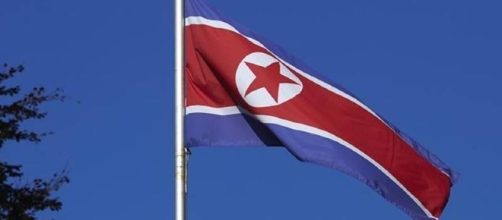North Korea vowed that it will strengthen its nuclear program in response to the "hostile" policy of the United States. The statement was delivered by Kim In Ryong, North Korean deputy ambassador to the U.N. in a press conference a few days after Pyongyang successfully tested a ballistic missile after three failed attempts last April.
Pyongyang wants complete lifting of all sanctions in exchange for a plan to abandon nuclear programs
North Korean ambassador Kim In Ryong adamantly said that only way Pyongyang will stop its nuclear ambition is the complete lifting of all sanctions imposed by the United States.
The United States however, didn't respond to North Korea's demands and instead continued its deployment of a second aircraft carrier, the USS Ronald Reagan to the Korean peninsula. The carrier will join the USS Carl Vinson for a scheduled dual-carrier training, which will test defensive measures and aircraft launching and landing capabilities.
U.S. defense secretary James Mattis said that North Korea's continued missile tests show that Kim Jong-Un isn't heeding any cautions and will not listen to international communities. He reiterated the need for china, Pyongyang's only regional ally, to step up its diplomatic pressure on North Korea and influence it to halt Jong-Un's deranged ambition.
What does the Pentagon expect after North Korea's successful missile test?
The defense secretary also stated that due to the successful missile test launch, North Korea's scientists have learned a lot. The next hurdle now is the ability to guide missiles to targets on re-entry, which the North Koreans are still not able to figure out.
In response, the United Nations convened an emergency meeting immediately after North Korea's successful missile launch. The council agreed that the launch is a violation of existing sanctions and will do every possible means to stop such tests.
North Korean deputy ambassador Kim In Ryong disagrees with the security council's conclusions and described the decision as "playing to the tune of the United States."
How will China respond to North Korea's statement of pushing through its nuclear program?
China's President Xi Jinping is adamant that the Chinese government doesn't want North Korea to become a nuclear power. China had made diplomatic talks with Pyongyang urging the rogue country to tone down its nuclear ambition.
However, the stringent diplomatic response expected by the United States from China is not happening. At the moment, China is focusing its efforts on modernizing its air force and seemingly turning a blind eye over the nuclear and ballistic progress of North Korea.


